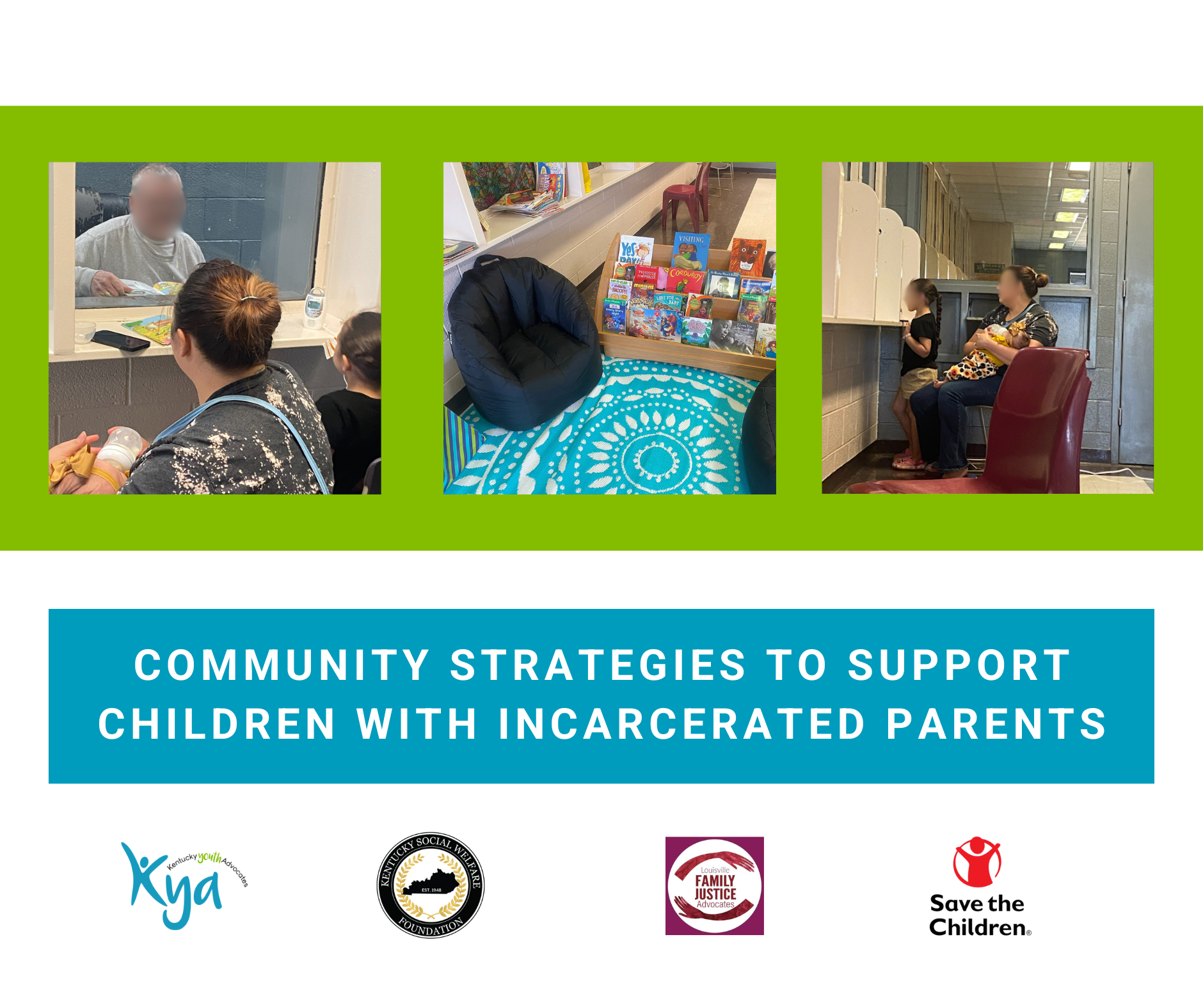Contact:
Mara Powell
502-895-8167 *122
mpowell@kyyouth.org
Keeping Kentucky Kids in Foster Care Connected to Families: Steps Ahead, Miles to Go
New 10-year Data Snapshot from the Annie E. Casey Foundation Shows Kentucky Lags Behind Other States
LOUISVILLE, KY – Though the data show stagnant progress from 2007 to 2017, Kentucky has recently demonstrated its commitment to prioritizing family-based placements for children in foster care, according to “Keeping Kids in Families: Trends in U.S. Foster Care Placement,” a new data snapshot released today by the Annie E. Casey Foundation’s KIDS COUNT® project. In 2017, Kentucky had 81 percent of children in foster care placed in a family setting, such as relative foster care, non-relative foster care, pre-adoptive homes, and trial home visit placements. This is only a one percentage point improvement from the 2007 rate, and the commonwealth now has the seventh lowest rate among U.S. states in utilizing family-based foster care. This leaves higher percentages of children in group homes, institutions, and supervised independent living.
However, the commonwealth has made strides in recent years to transform how the system keeps kids safe and strengthens families.
“Comprehensive child welfare reforms and state budget investments in 2018, and measures this legislative session to better support kinship families and align with the federal Family First Act, have built a foundation to genuinely revolutionize child welfare. And those bipartisan measures along with an unquestioned commitment from the Bevin Administration around child welfare reform should be celebrated,” said Dr. Terry Brooks, executive director of Kentucky Youth Advocates. “The real challenge is to ensure that the commonwealth sustains an unrelenting focus on ensuring that every Kentucky kid is connected to a family. And this data should remind us all – including elected leaders – that we still have miles to go to ensure Kentucky truly has a child welfare system marked by quality.”
Being part of a family is essential to well-being, especially for children, teenagers, and young adults who are rapidly developing and transitioning to independence. The new data suggest a growing consensus among practitioners and policymakers that young people in the child welfare system should live in families. Non-family-based placements, such as group homes and institutions, should be utilized only when necessary and for a limited time, and should help the child return to a family as soon as possible.
“Family helps build and mold all of us and is essential for any individual to be able to know where they came from and who their people are. Often times, despite possible issues in the past, youth who go through care still long to know their family and often times regret not knowing them. I still am attempting to reconnect with family whom I have not been able to see in over a decade,” said Joshua Degnan, former foster youth and President of the Voices of the Commonwealth, an advocacy group of youth in or formerly in foster care.
Key findings from “Keeping Kids in Families” include:
- For teenagers, Kentucky needs a stronger emphasis on family placements. For youth over age 12, the use of group homes or institutions rose by 12 percent from 2007 to 2017. In 2017, more than one-third of teenagers in foster care were in a group home or institution.
- Progress has been uneven for children depending on their race and ethnicity. The use of group homes and institutions in Kentucky has fallen over time for Non-Hispanic White children but has risen for Non-Hispanic Black and multiracial children.
- Kentucky has a track record of placing children with family, though we’ve fallen behind when it comes to utilizing relatives as foster parents. In 2017, the commonwealth had the lowest rate among states in use of relative foster care, at four percent.
Through the federal Family First Prevention Services Act, signed into law in 2018, states are empowered to prioritize family placement and high-quality, family-centered settings to produce the best outcomes for young people.
“Every child deserves a safe and healthy childhood, which is why we are committed to being among the first states to implement Family First. This federal legislation gives us the opportunity to help families stay together safely, ensure children in our care find a permanent, stable home with a family, and build upon the community supports and resources available to our staff, which will ultimately allow them to better serve our families and children. It’s going to take a real commitment not only from DCBS, but from every state and local leader and community partner because child welfare belongs to all of us,” said Eric T. Clark, Commissioner of the Kentucky Department for Community Based Services.
“At Sunrise Children’s Services, we know our job is connect children to families, whether that’s preserving the family through needed services or supporting the child in foster, kinship, or adoptive families. Supporting the whole family unit sets the child, caregivers, and the community up for success. Strong families make the quality of life better for all of us, both as individuals and as a society,” said Dale Suttles, executive director of Sunrise Children’s Services.
Kentucky Youth Advocates joins the Casey Foundation in calling on child welfare systems to leverage the opportunities afforded by Family First to increase available services to support and preserve families. Additionally, Kentucky can:
- prioritize wraparound supports and services for the whole family, including biological parents, foster parents, and relative foster caregivers to keep kids safely in family-based placements;
- make it easier for kinship and fictive kin caregivers to train and become licensed foster parents;
- utilize relative foster care as a way to step down from institutional care and adequately prepare caregivers with appropriate supports; and
- engage the whole system of child welfare in the importance of family-based options and how group homes and institutions impact children and teens, especially long-term.
“Kentucky’s next steps in transforming the child welfare system are appropriately focusing on better supporting parents and caregivers. Of course, the real question is whether the potential of these reforms becomes a reality for Kentucky kids,” said Dr. Brooks. “And the answers to that question will come down to finding a common action agenda during the Governor’s race, crafting a next step policy agenda for the 2020 General Assembly, and ensuring a prioritization around child welfare transformation in the 2020 state budget.”
Read “Keeping Kids in Families: Trends in U.S. Foster Care Placement,” from the Annie E. Casey Foundation here.
###
About Kentucky Youth Advocates
Kentucky Youth Advocates believes all children deserve to be safe, healthy, and secure. As THE independent voice for Kentucky’s children, we work to ensure policymakers create investments and policies that are good for children. Learn more at www.kyyouth.org.
About the Annie E. Casey Foundation
The Annie E. Casey Foundation creates a brighter future for the nation’s children by developing solutions to strengthen families, build paths to economic opportunity and transform struggling communities into safer and healthier places to live, work and grow. For more information, visit www.aecf.org. KIDS COUNT® is a registered trademark of the Annie E. Casey Foundation.






Leave A Comment